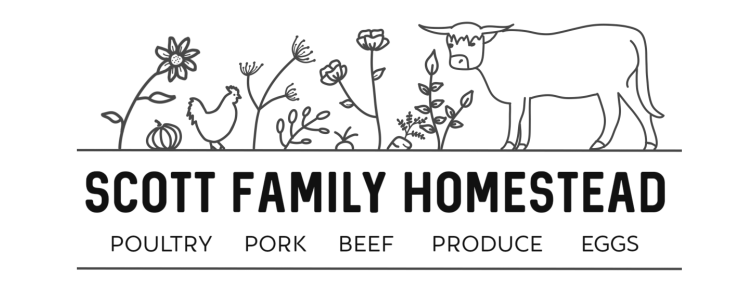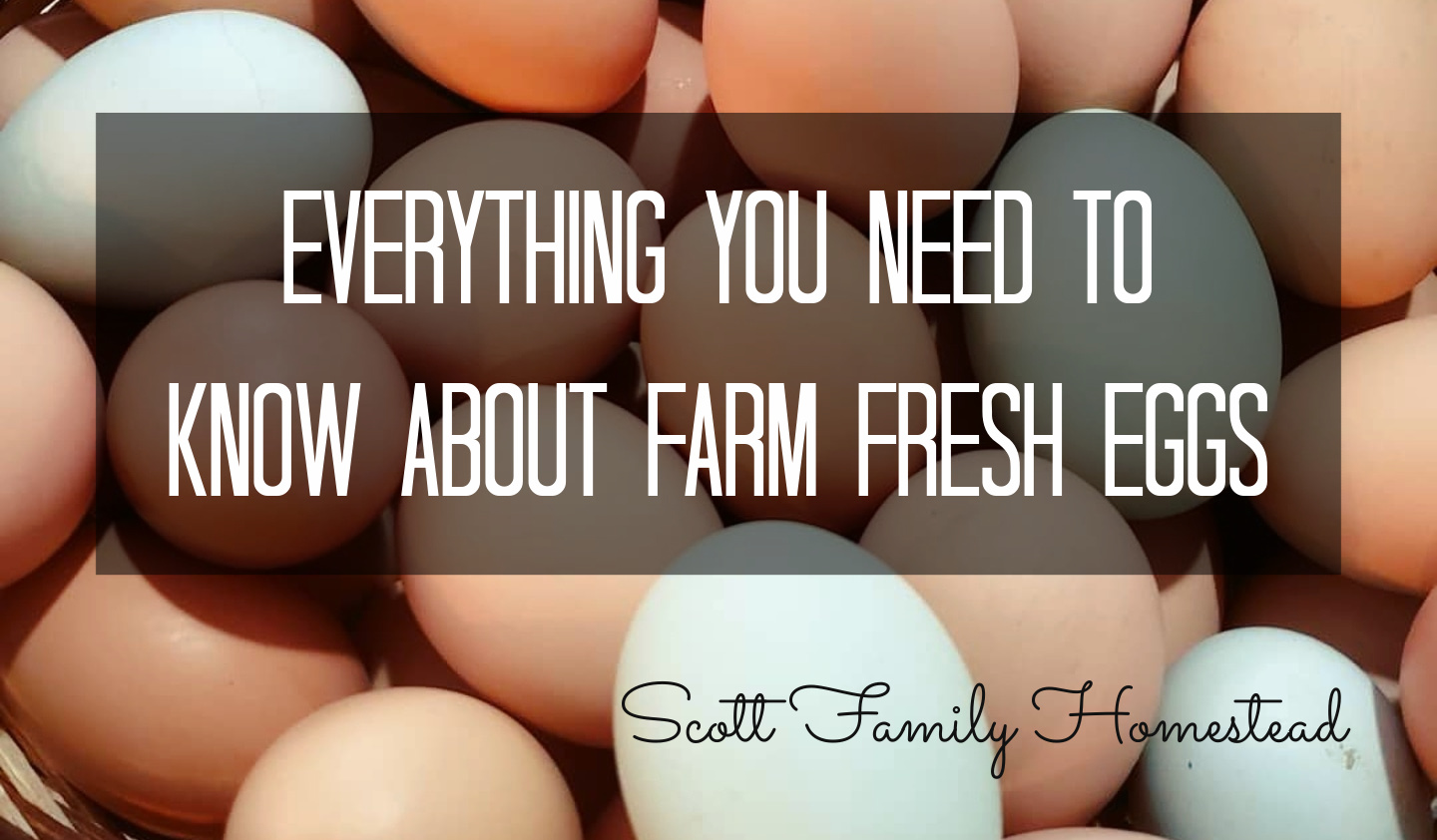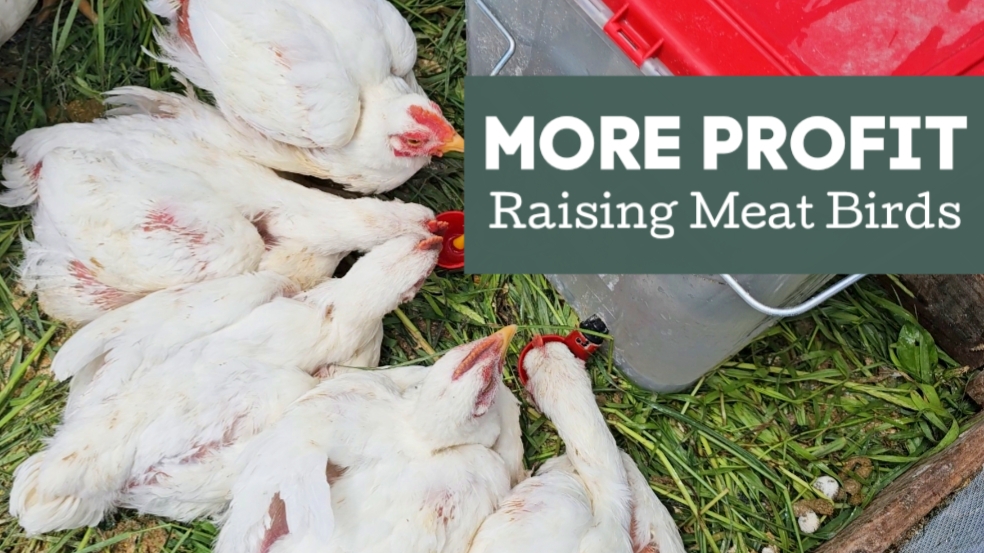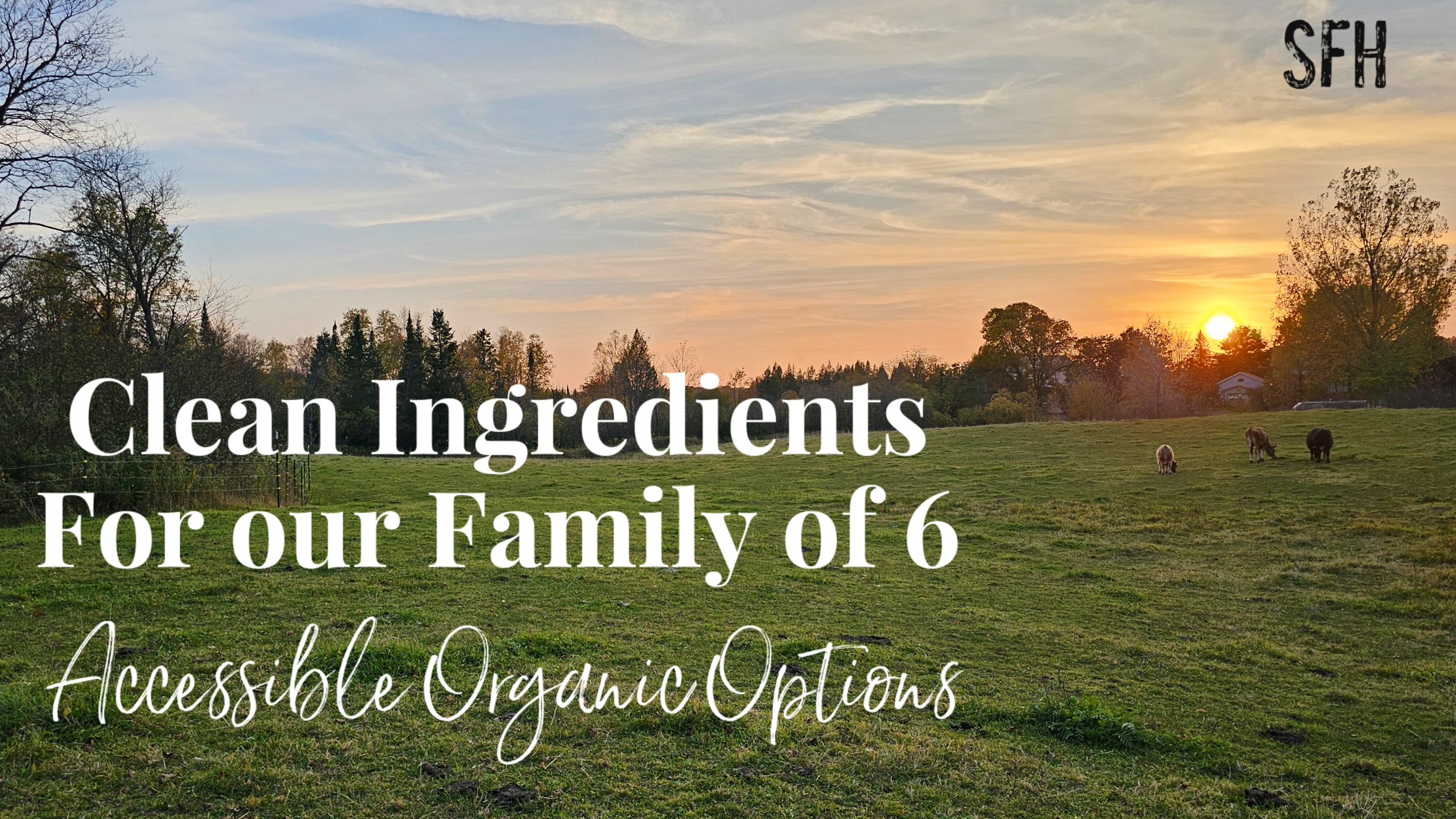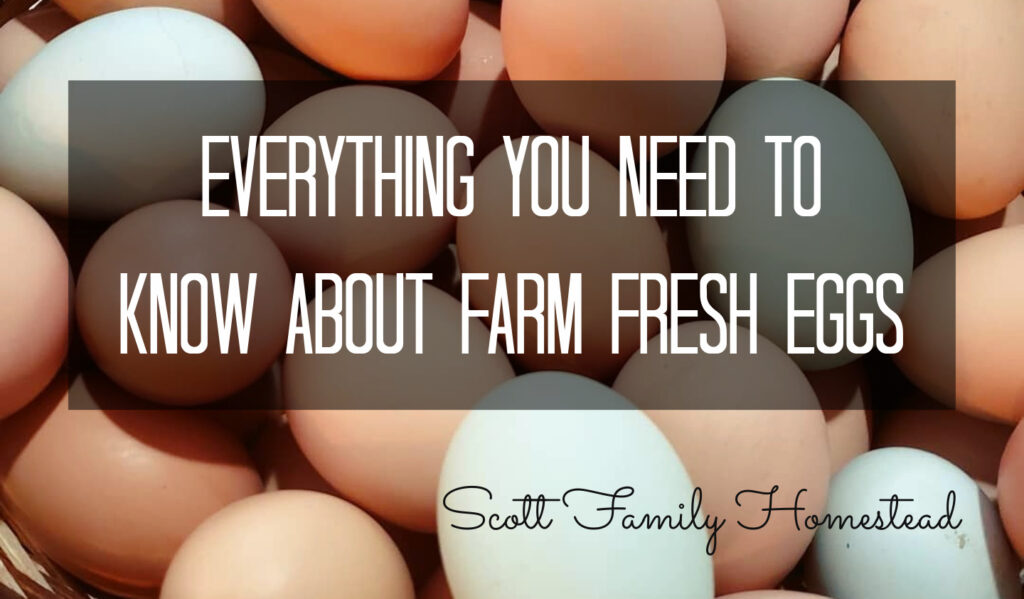
Farm fresh eggs are different than the standard large white egg you are used to buying at the grocery store. You will find a variety of colors and sizes, the yolks are a different color, and sometimes they just look strange. I’m here to answer all of your fresh eggs questions!
Store Bought Eggs
To understand the advantages of farm fresh eggs, you first need to understand the conventional egg production. Store bought eggs are generally white or brown. White eggs are most common because they are laid by a highly productive breed called leghorns. Brown eggs are becoming more popular and may seem more “natural” but the truth is that they are just laid by a different breed. Egg carton labels are one of the most misleading things you will find in the grocery store. “Organic”, “natural”, “hormone free”, “cage free”, and drawing some nice green blades of grass on the carton all give the impression that these chickens were raised in a more humane environment. You can read about egg labels here. Most importantly though, free range, pasture raised chickens is what you want to look for and the best place to look is in your neighbors backyards.
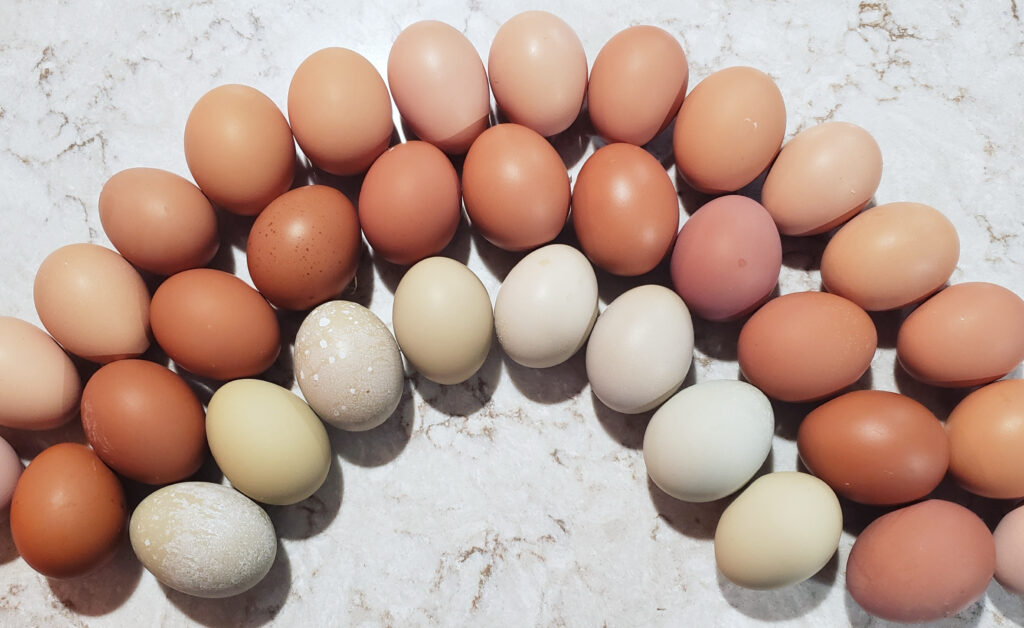
Egg Colors
There are many breeds of chickens and they each lay a unique colored egg. They can range from deep brown to white to blue or green! We purchase and breed based on egg color to get a beautiful egg basket. We also have some beautiful speckled eggs, which can be pigment in the egg shell or part of the protective layer on the outside of the egg, known as the bloom. Ultimately though, egg color doesn’t mean anything in regards to nutrition or how the chicken was raised, it is just part of their genetics. Want to know what color egg a chicken will lay? Look at their earlobes! Yes, chickens have earlobes and in many cases they correspond the color egg they will lay.
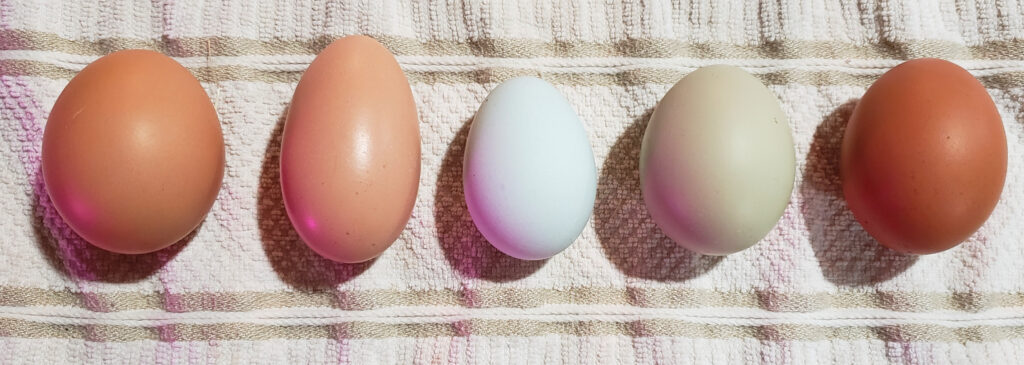
Shapes and Sizes
When hens are young they tend to lay smaller eggs or unique eggs, such as tiny “fairy eggs” or double yolks. Eggs can be skinny or round. As their system becomes accustom to laying, the eggs will generally even out to a typical egg shape and size, although some chickens will continue to lay distinct eggs. Sometimes you might find calcium deposits or even areas that look like wrinkles. These are all normal.
Orange Yolks
Have you noticed that store bought eggs and farm fresh eggs have completely different colored yolks? It’s all about what they eat and how much sunlight the birds are getting! Orange yolks are a sign of healthy chickens. They have more nutritional value and can even have a richer taste. Coops are a safe place for chickens and for safety reasons some farms and homesteads can not free range. If you want the best nutritional eggs though, look to buy from a producer who free ranges or utilizes rotational grazing. These will be the best eggs you can buy. The greens, bugs, and grain they eat will all contribute to yolk color. We use organic, non-gmo grain, especially in the winter. During the months when they eat more grain the yolks will be lighter in color, but still a bit more colorful than store bought eggs.
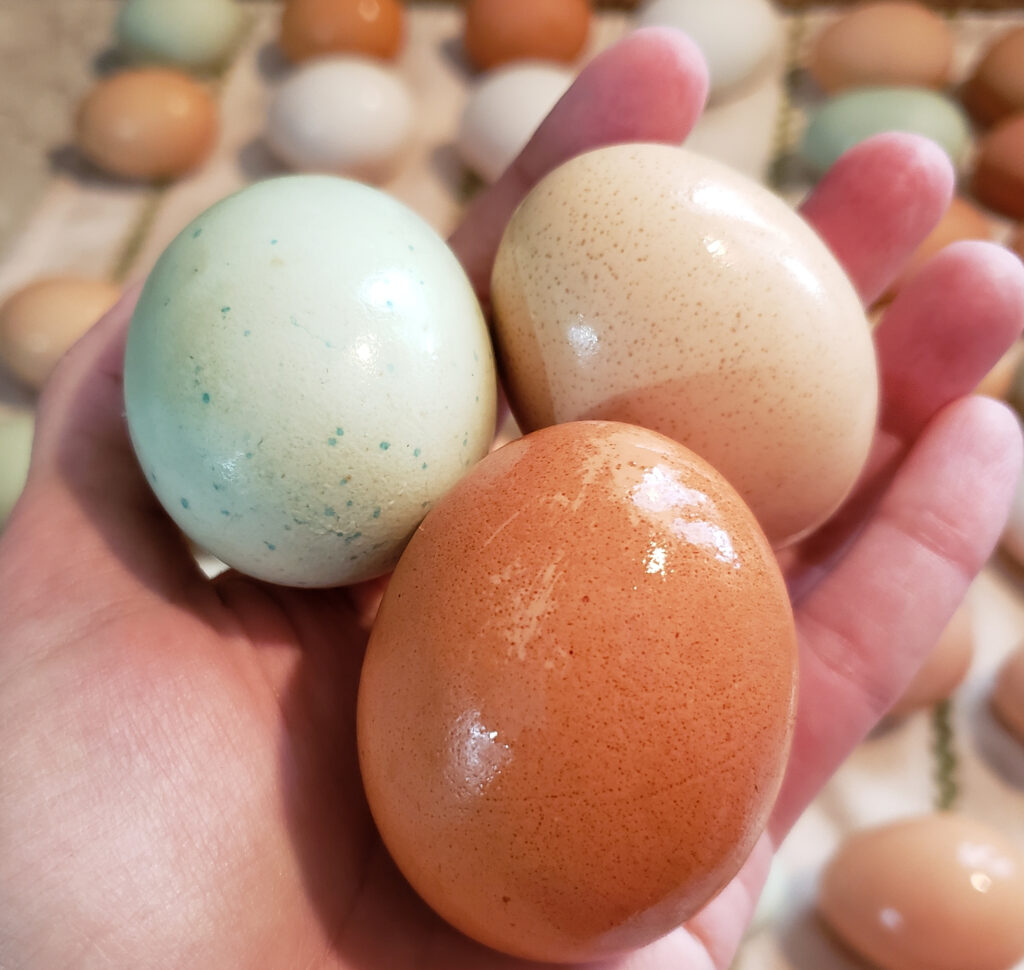
Washed or Unwashed?
Farms vary in how whether they wash eggs or not. Personally, we wash our eggs. Once eggs are washed, the bloom, or protective coating, is compromised. This means they must be refrigerated, while unwashed eggs are perfectly fine to leave out on the counter as long as they have been kept at a consistent temperature. We wash and refrigerate for a few reasons. First, hens can be messy. Most of our eggs need just the tiniest bit of washing, but if an egg breaks in the nest box or if there is poop involved it can get messy. We have had customers express that they prefer washed eggs and we are happy to do that. Eggs also need to be refrigerated if they have ever been at cold temperatures, which ours sometimes are just because we live in a cold area. You will also find that some farms only sell unwashed eggs as “hatching eggs” and at a much higher price. This is common when farms have fertile eggs that can be hatched, which makes their unwashed eggs worth quite a bit more. We personally don’t sell hatching eggs, but with our flock it would be possible to hatch from our eggs if they were unwashed.
Freshness Test
How long do farm fresh eggs last? This answer might surprise you, but fresh eggs can last for months! Keep in mind that eggs in the grocery store can be up to 2 months old when you buy them. When in doubt, you can do a freshness test to see if your eggs are safe to eat. Just put the egg into a glass of water. If it sinks, it is fresh. If it stands on its end it is still good, but should be used soon. If the egg floats, throw it out. That egg has gone bad.
Older eggs are easier to peel if you hard boil them, which is why a lot of people prefer store bought eggs for that purpose. Those eggs that stand on their end are great for hard boiling. If you are wanting hard boiled eggs and only have fresh eggs, try steaming them! It makes them much easier to peel.
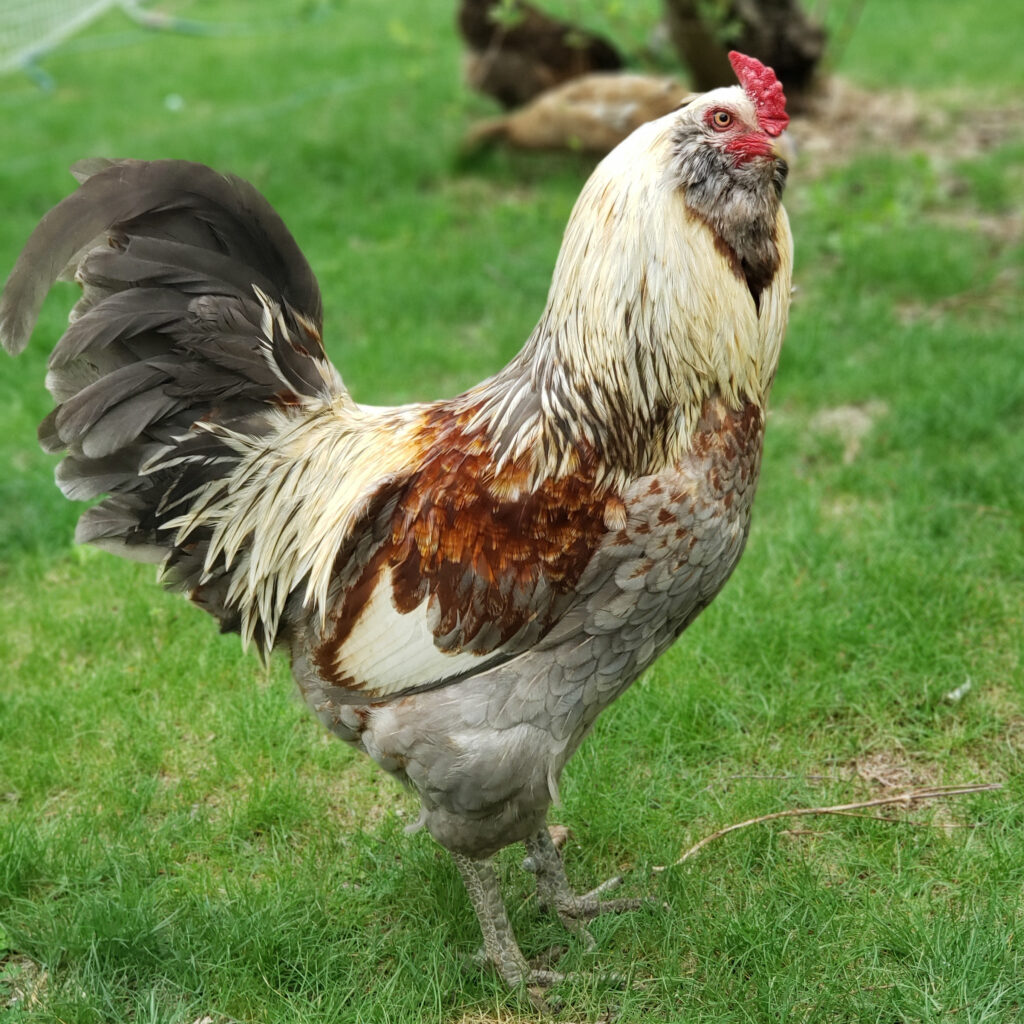
Roosters
We have roosters in our flock. Roosters do not cause hens to lay eggs, they will lay with our without them. Roosters will fertilize eggs though, which doesn’t affect them unless you let a hen sit on them or put them in an incubator. As long as eggs are collected daily the fertilization will make no difference in the egg. We keep roosters for protection purposes and being able to hatch out our own chickens is a bonus. We only keep friendly roosters, we have no place for animals that will harm us or our children here on our homestead. Aggressive roosters end up in the soup pot.
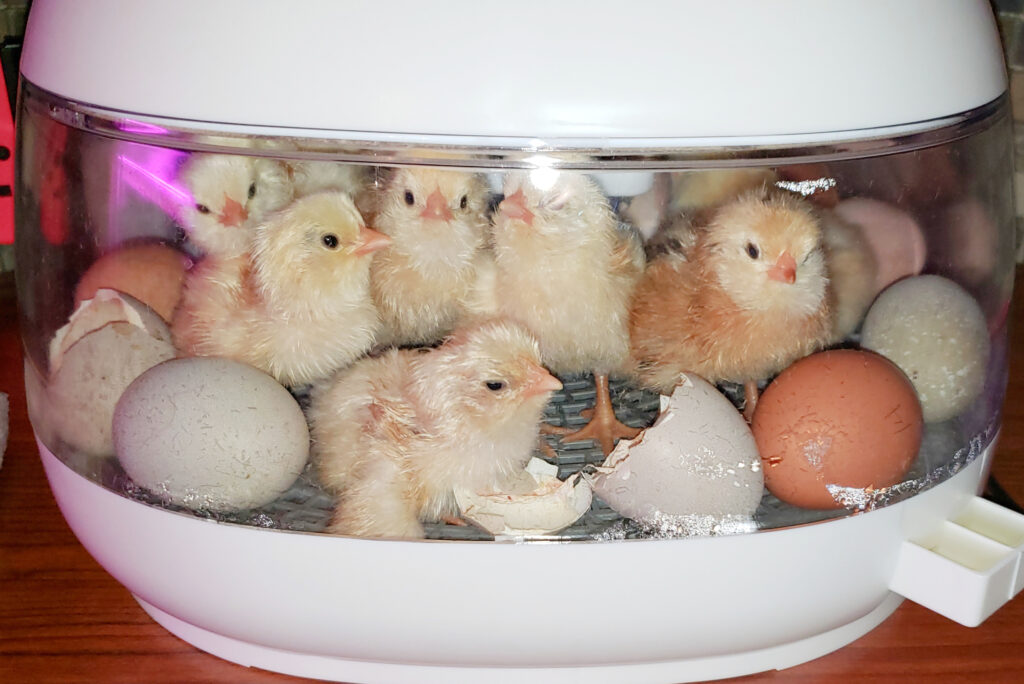
Old Hens and Flock Replacement
I know a lot of farms that harvest their old hens when they stop laying. I have no judgement against that, it is a very sustainable way to manage a flock. We allow ours to live out their days here, mostly because I don’t always know who is laying and who has retired. When in their prime, a hen will lay 4-6 eggs a week, depending on breed and age. We currently get about 20 eggs a day from our 26 hens. We hatch or buy new chickens every year to keep a steady supply of eggs.
The most important question, why did the chicken cross the road?
…because the chicken was naughty and the neighbors have a bird feeder.
I hope that answers any questions you have about farm fresh eggs, but if you want any more information be sure to reach out! If you want to see the birds that lay your fresh eggs from Scott Family Homestead, be sure to follow us on Facebook and Instagram.
